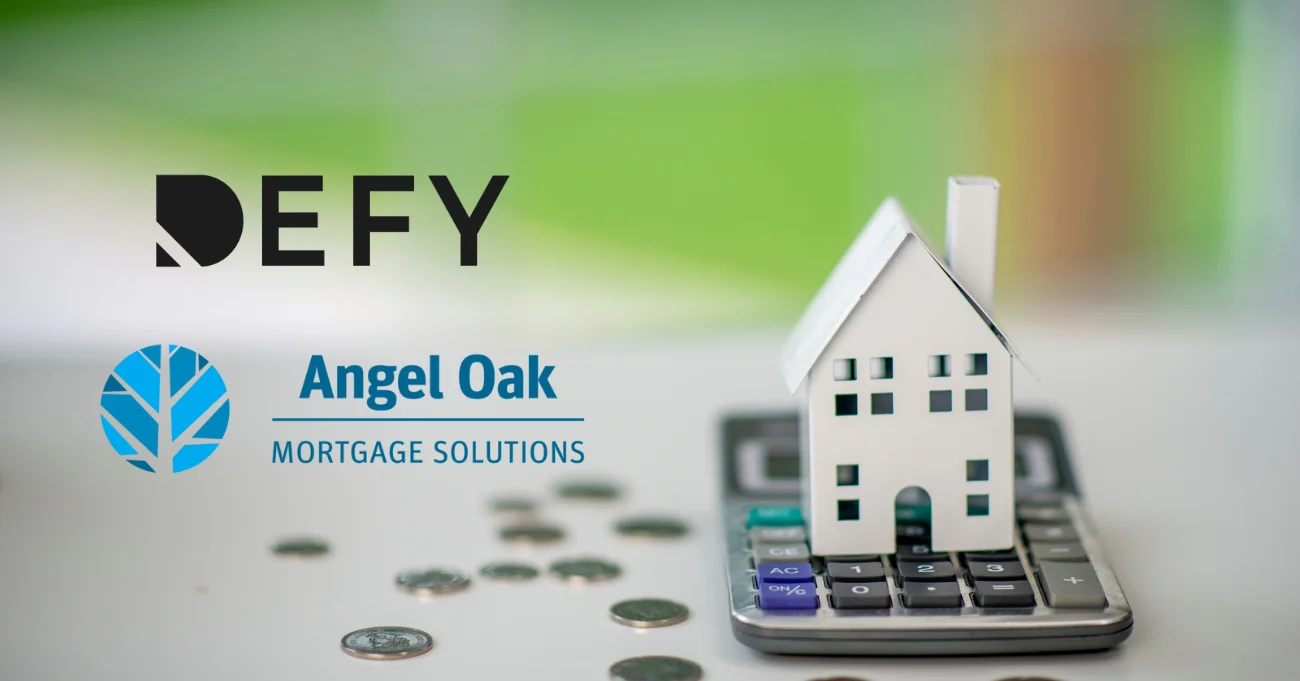Looking for a mortgage can feel overwhelming, especially if you’re a first-time homebuyer or have less-than-perfect credit. But there’s an option out there to help – FHA loans. These loans offer a straight-forward path to homeownership for many buyers.
With roughly 14.5% of all mortgage applications being FHA loans and about 29% of first-time homebuyers using an FHA loan application to finance their home purchase, it’s clear this program is a popular choice.
Whether you’re purchasing your first home, upgrading, or refinancing, FHA loans stand out for their flexible requirements and competitive terms. This guide will break down the FHA loan application process step by step, giving you the confidence to move forward with your homeownership journey.
What Is an FHA Loan?
An FHA loan is a type of mortgage backed by the Federal Housing Administration that’s designed to make homeownership more accessible for more buyers. Known for its flexible requirements, it’s especially appealing because it allows for a lower down payment and has more lenient credit and income requirements compared to conventional loans.
How Does an FHA Loan Work?
FHA loans work by providing government-backed insurance to lenders, which reduces their risk and makes it easier for borrowers to qualify. While they’re a great option for many buyers, FHA loans do come with some limitations. For example, they can’t be used to purchase investment properties unless you’re buying a multi-family home and plan to live in one of the units.
Additionally, there are loan limits based on the location of the property, and you’re required to pay mortgage insurance premiums (MIP) both upfront and annually. These loans work well for buyers looking for a primary residence and can meet the program’s specific guidelines.

FHA Loan Options and Features
FHA loans are packed with features that make them an attractive choice for many homebuyers and homeowners. They’re designed to be flexible and accessible, catering to many different types of borrowers. Here are some key options and features to consider:
- Flexible Credit Requirements: Borrowers with credit scores as low as 500-580 can qualify.
- Low Down Payment Options: The minimum down payment requirements are much lower than many conventional loans, which makes FHA loans a good choice for those with limited savings.
- Competitive Interest Rates: FHA loans often come with interest rates that are competitive, even for borrowers with less-than-perfect credit.
- Variety of Loan Terms: You can choose between loan terms like 15-year and 30-year fixed-rate mortgages, giving you flexibility based on your budget and financial goals.
- Refinance Options: FHA loans allow you to refinance for a variety of reasons, like reducing or eliminating mortgage insurance, increasing your loan size, lowering your interest rate, or reducing your monthly payment.
Who Would Benefit From an FHA Loan?
FHA loans are designed to meet the needs of a wide range of borrowers, making homeownership possible for those who may not qualify for a conventional loan. Here’s a look at who can benefit the most from them:
- First-Time Homebuyers: With low down payment requirements and flexible credit standards, FHA loans are a go-to choice for first-time buyers.
- Buyers with Limited Savings: If saving for a large down payment feels out of reach, an FHA loan’s 3.5% minimum down payment can make homeownership more accessible.
- Individuals with Lower Credit Scores: Borrowers with credit scores as low as 500 may still qualify.
- Self-Employed Individuals: If you’re self-employed and can provide consistent tax returns and financial documents, FHA loans offer more flexibility in income verification.
- Buyers Seeking More Flexible Debt-to-Income Ratios: FHA loans accommodate higher DTI ratios, making it easier to qualify if you have other debt.
- Those Recovering from Financial Hardship: FHA loans have shorter waiting periods after bankruptcies or foreclosures, making them ideal for buyers rebuilding their credit scores.
- Homebuyers in High-Cost Areas: Loan limits vary by location, which means buyers in pricier markets can access higher loan amounts.
- Low-to-Moderate Income Borrowers: FHA loans are tailored to help borrowers whose income might not meet conventional loan requirements.
- Seniors or Retirees with Fixed Income: Older buyers can qualify using stable retirement income from pensions or Social Security.
- Borrowers Looking to Purchase Fixer-Uppers: FHA 203(k) loans allow buyers to finance both the purchase price and renovation costs in one loan.

FHA Loan Requirements
To qualify for an FHA loan, you have to meet specific requirements set by the Federal Housing Administration. These include:
- A valid Social Security Number (SSN)
- You must be a U.S. citizen, permanent resident, or eligible non-resident
- A minimum credit score of 580 for a 3.5% down payment
- Scores between 500-579 may qualify with a 10% down payment
- A minimum down payment of 3.5% depending on your credit score
- A maximum debt-to-income (DTI) ratio of 43%
- Proof of steady income or alternative income sources for at least two years
- You must pay a Mortgage Insurance Premiums (MIP):
- Upfront during closing (typically 1.75%).
- Annually, added to monthly payments.
- The property must:
- Be the borrower’s primary residence.
- Meet the FHA’s minimum property standards.
- Not exceed the FHA maximum loan limit for the county.
Common FHA Loan Issues and Solutions
An FHA loan application can open the door to homeownership, but like any loan process, it can come with challenges. Common issues can sometimes slow things down.
The good news? With the right strategies, most of these roadblocks can be overcome. Let’s take a look at how to handle them:
- Credit Score Problems: If your credit score is below the FHA’s minimum requirements, it doesn’t mean the end of the road. Consider working with a credit counselor to identify ways to boost your score quickly, like paying down balances or disputing inaccuracies on your credit report. Patience and planning can make all the difference.
- Income Verification Issues: For borrowers with non-traditional income (like freelancers or self-employed individuals), proving consistent earnings can be tricky. Be ready to provide additional documentation, such as bank statements, 1099s, or profit and loss statements, to help paint a clearer picture of your financial stability.
- Property Condition Concerns: FHA loans require properties to meet specific safety and livability standards. If the home you’re purchasing falls short, consider negotiating with the seller to address necessary repairs before closing. Alternatively, look into an FHA 203(k) loan, which allows you to finance repairs as part of your mortgage.

The FHA Loan Application Process
For new homebuyers, the FHA loan application process might seem a bit complex, but breaking it down step by step makes it manageable and straightforward. Here’s a detailed guide to help you every step of the way:
1. Check Your Eligibility
The first step in the FHA loan application process is to make sure you meet the requirements. This includes having a minimum credit score of 580 for a 3.5% down payment (or 500 with 10% down), a manageable debt-to-income (DTI) ratio, and steady income or alternative sources of financial stability. You’ll also need to plan to use the property as your primary residence. Reviewing your eligibility upfront helps you avoid surprises later.
2. Gather Your Documents
To streamline the FHA loan application process, collect all the necessary paperwork before applying. This typically includes recent pay stubs, W2s or 1099s, bank statements, tax returns, and proof of assets. If you’re self-employed, you may need additional documentation like profit and loss statements. Having these ready ensures your application moves forward without delays.
3. Find an FHA Lender
Not all lenders are FHA-approved, so you’ll need to choose one that specializes in these types of loans. Research lenders, compare rates, and look for reviews to find one that suits your needs. A great option is Defy Mortgage, which offers tailored guidance and expertise in FHA loan applications to help you navigate the process smoothly and overcome any challenges along the way. Choosing the right lender ensures you have the support you need from start to finish.

4. Get a Pre-Approval
Pre-approval is an important step in the FHA loan application process where the lender evaluates your finances to determine how much you can borrow. This involves submitting your documents for review. A pre-approval letter not only gives you a clear budget but also shows sellers that you’re a serious buyer.
5. Choose a Home
Once pre-approved, you can start house hunting within your budget. During this step in the FHA loan application process, make sure the home meets FHA standards, which include safety, security, and structural soundness. Working with a real estate agent familiar with FHA requirements can simplify this step.
6. Submit a Formal FHA Loan Application
After finding the perfect home, you’ll formally submit an FHA loan application. This involves providing the lender with detailed information about the property and submitting any additional documents they request. Your lender will also lock in your interest rate at this stage.
7. Loan Underwriting and Appraisal
The underwriting process involves a detailed review of your financials and the property itself. The FHA also requires an appraisal to confirm the home’s value and ensure it meets minimum property standards. If issues are identified during underwriting or the appraisal, you may need to address them before the loan can be approved.
8. Loan Approval and Closing
Once underwriting is complete, you’ll receive final approval of your FHA loan application. At closing, you’ll sign all necessary documents, pay closing costs, and officially secure your FHA loan. After closing, you’ll receive the keys to your new home – congratulations! You’re now a homeowner.

Tips for a Smooth FHA Loan Application Process
FHA loan applications don’t have to be stressful if you take the right steps to be prepared. Here are some simple tips to help ensure the process goes as smoothly as possible:
- Maintain financial stability during the process by avoiding any significant financial changes, like taking on new debt or switching jobs.
- Stay organized with your documents, such as bank statements, tax returns, and pay stubs, to avoid delays.
- Communicate regularly with your lender to quickly address any questions or concerns.
FHA Loan Alternatives
If you don’t meet the FHA loan application requirements, don’t worry – you have options. Non-QM (non-qualified mortgage) loans were designed specifically for people that don’t fit the traditional mold. Here are some non-QM loan options to consider if you don’t qualify for an FHA or conventional loan:
- Bank Statement Loans: Qualify for a home loan using your bank statements as proof of income.
- P&L Loans: Qualify for a home loan using your business’ CPA-prepared P&L (profit & loss) statements as proof of income.
- DSCR Loans: Qualify for a home loan using your property’s rental income instead of your personal income.
Take the Next Step by Submitting a FHA Loan Application
The FHA loan application process can seem confusing at first, but with the right preparation and guidance, it can be a relatively easy path to homeownership. If you follow these steps and stay organized, you’ll be well on your way to securing an FHA loan that’s perfect for your needs.
Ready to take the next step? Book a call with Defy Mortgage today or give us a ring at (615) 622-1032 and let our team guide you through the process with expert advice and personalized support.
FHA Loan Application Process FAQs:
- What is an FHA loan?
An FHA loan is a mortgage insured by the Federal Housing Administration, designed to help borrowers with lower credit scores or limited savings qualify for homeownership.
- How is an FHA loan different from a conventional loan?
FHA loans have more flexible requirements, such as lower credit score thresholds and smaller down payments, while conventional loans often require higher credit scores and larger down payments.
- Who is eligible to apply for an FHA loan?
Anyone meeting the FHA’s credit, income, and debt-to-income ratio requirements can apply, as long as the property will be used as their primary residence.
- How long does the FHA loan application process typically take?
The FHA loan application process generally takes 30-60 days, depending on factors like lender efficiency, borrower preparedness, and the complexity of the application.
- What credit score is required to qualify for an FHA loan?
A minimum credit score of 580 is required for a 3.5% down payment, but borrowers with scores between 500-579 may qualify with a 10% down payment.
- How much down payment is needed for an FHA loan?
The minimum down payment is 3.5% of the purchase price if your credit score is 580 or higher; it increases to 10% for credit scores between 500-579.
- What documents are needed for an FHA loan application?
Typical documents include recent pay stubs, W-2s or 1099s, tax returns, bank statements, and proof of assets. Self-employed borrowers may need profit and loss statements.
- How do I find an FHA-approved lender?
Look for lenders that explicitly offer FHA loans, or use the HUD-approved lender search tool to find qualified lenders in your area.
- Is an FHA appraisal different from a standard appraisal?
Yes, an FHA appraisal not only determines the property’s value but also ensures the home meets FHA safety and livability standards.
- Are FHA loans available for investment properties or second homes?
No, FHA loans are only available for primary residences, although you can use them to purchase multi-family properties if you live in one of the units.




